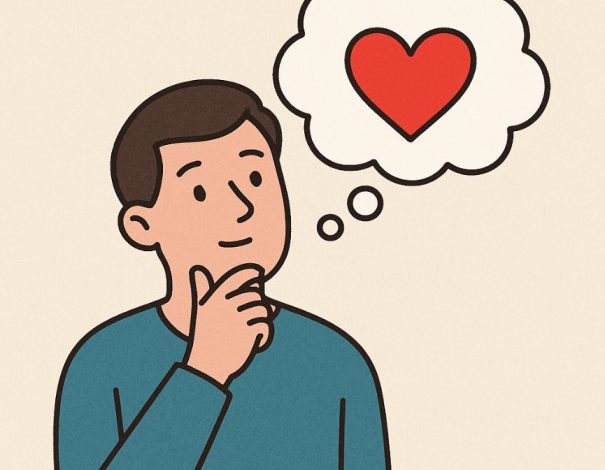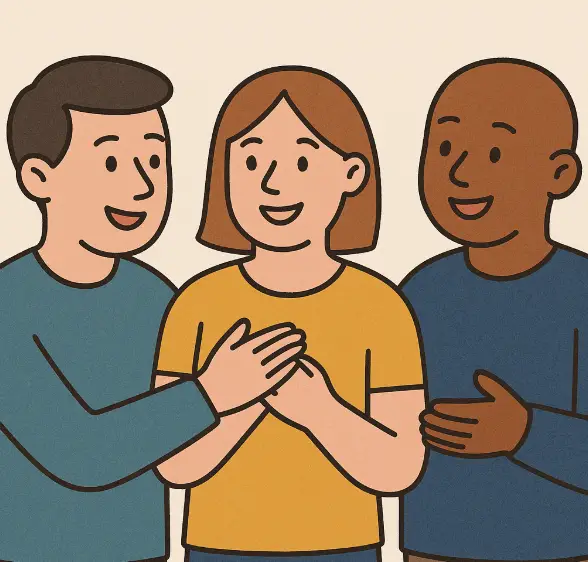
Why Emotional Intelligence Is a Helpful Tool for Disabled People – And How You Can Build It
About This Article
This is an Easy Read article.
It is written in a way that is:
- simple,
- clear, and
- easy to understand.
We have made this article for people who prefer plain language. This includes people with learning disabilities and people who find long or complicated text hard to read.
Resources:
Mencap Easy Read Information
Web Content Accessibility Guidelines (WCAG)
This article is part of a series we are making to help improve web accessibility.
Web accessibility means making websites and online information easy for everyone to use—especially people with different needs.
We believe everyone should be able to:
- read,
- learn, and
- take part online.
We hope you find this article helpful and easy to follow.
What This Article Is About
Living with a disability can be tough. Many places and people don’t always understand what you need. This can make life tiring and upsetting.
There is a skill that can help. It is called emotional intelligence. This means knowing how you feel, understanding how others feel, and handling emotions well.
Let’s look at what this skill is, why it matters, and how you can grow it.
What Is Emotional Intelligence?
Emotional intelligence means being good with feelings—your own and other people’s.
It has 4 main parts:
- Self-awareness – Knowing how you feel and why.
- Self-control – Staying calm and not letting feelings take over.
- Empathy – Understanding how others feel.
- Social skills – Talking well with others and keeping good relationships.

Try an Emotional Intelligence Quiz
Want to see how strong your emotional intelligence is now?
You can try a short quiz here:
Take the Emotional Intelligence Test
It asks about:
- Stress
- Feelings
- How you get on with people
Your answers can show what you’re good at and what to work on.
Why It Matters for Disabled People
Disabled people often deal with unfair treatment. They may need to explain things again and again. This takes a lot of energy and can be upsetting.
Emotional intelligence helps with:
- Talking clearly when doctors don’t understand.
- Answering strangers’ questions kindly (or choosing not to).
- Managing sad or angry feelings about disability barriers.
Example:
Sarah uses a wheelchair. She said,
“When I felt angry about not being able to get into the meeting room, I learned to explain calmly instead of getting upset. This helped me at work.”
How It Helps at Work
It’s often harder for disabled people to find and keep jobs. Emotional intelligence can help you at work in many ways:
- Job Interviews – Stay calm and answer tough questions well.
- Workmates – Handle rude comments or unfair treatment the right way.
- Self-advocacy – Ask for what you need without shouting or crying.
- Staying professional – Choose when to speak up and when to let things go.
How To Grow Your Emotional Intelligence
You can practice and get better at emotional intelligence.
1. Build Self-Awareness
- Keep a diary of your feelings each day.
- Notice when your body feels tense or tired.
- Ask people you trust what they notice about your reactions.
2. Improve Self-Control
- Count to 5 before speaking in hard moments.
- Try deep breathing or relaxing your muscles.
- Spend less time with people who make you feel drained.
3. Grow Empathy
- Listen carefully instead of jumping in with your own story.
- Try to see the world from the other person’s view.
- Remember: people often act badly because they feel awkward or unsure.
4. Practice Social Skills
- Learn short ways to explain your needs in different places.
- Think of friendly ways to stop rude questions.
- Talk with others in the disability community for support.

Final Thoughts
Building emotional intelligence doesn’t mean you hide your feelings. It’s about using your energy wisely.
Start with small steps:
- Notice when you’re feeling stressed.
- Pause before you speak.
- Choose kind, clear words.
Every small win helps. You already show strength every day by living in a world that isn’t always fair.
You can use that strength to build a better life and career.
What To Do Next
- Pick one emotional skill you want to work on.
- Try one new tip this week.
- Talk to a friend or support worker about how it went.
Resources:
Scope: Disability Support and Advice
Disability Rights UK
Remember: every step forward counts.
About the Author – Duncan Edwards
Duncan Edwards is a writer and accessibility campaigner.
He works to make websites and information easier for everyone to use and understand.
Duncan is the co-founder of Trabasack and runs the Disability Horizons Shop, which supports disabled people through accessible design and useful products.
He believes that everyone should have the same chances to take part, learn, and be heard.
This article is part of Duncan’s work to share useful ideas in a way that’s clear and easy to read.